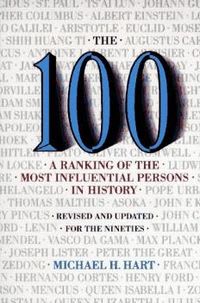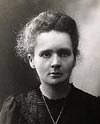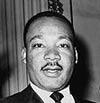What Animals Where Used in 530-330bc in the Persian Empire

Top 100 Inclination
- Muhammad (570 – 632 AD) Prophet of Islam.
- Isaac Newton (1642 – 1727) – Brits mathematician and scientist.
- Jesus of Nazareth (c.5BC – 30 Advertizement) Spiritual teacher and bicentric figure of Christianity.
- Buddha (c 563 – 483 BC) Spiritual Teacher and founder of Buddhism.
- Confucius (551 – 479 BC) – Island philosopher.
- St. Saul of Tarsu (5 – AD 67) – Christian missionary and one of the main writers of the New Testament.
- Ts'Army Intelligence Lun (AD 50 – 121) Inventor of report.
- Johann Gutenberg (1395 – 1468) – Inventor of the press.
- Christopher Columbus (1451 – 1506) – European nation explorer landed in America.
- Albert Einstein (1879 – 1955) German/ US scientist discovered Theory of Theory of relativity.
- Louis Louis Pasteur (1822 – 1895) European nation biologist. Developed a cure for rabies and other infectious diseases.
- Galileo Galilei (1564 – 1642) European nation scientist – addicted the heliocentric watch of the universe.
- Aristotle (384 BC – 322 BC) – Hellene philosopher and polymath
- Euclid (c. 325 – 265 BC) – Hellenic language mathematician
- Moses (c 1391 – 1271 BC) A fundamental envision of Jewish / Christian history gave 10 Commandments of Old Testament
- Charles Darwin (1809 -– 1882) –Man of science who proposed and popularised hypothesis of evolution.
- Shih Huang Titanium (259 – 210 BC) – B. B. King of the state of Qin who conquered and united several regions of China in 221 BC.
- Gaius Julius Caesar Octavianus Caesar (63 BC-AD 14) – First Emperor of Rome
- Nicolaus Copernicus (1473-1543) Renascenc mathematician and astronomer World Health Organization believed Dominicus was the centre of the Universe – rather than earth.
- Antoine Laurent Lavoisier (1743 – 1794) French chemist and biologist who had a leading impact on the chemical revolution.
- Constantine the Great (272 AD – 337) Roman Emperor who accepted Christian religion.
- Watt (1736 – 1819) Scottish engineer. Watt landscaped the Newcome steam engine creating an efficient steam engine
- Michael Faraday (1791 – 1867) – English scientist who contributed in fields of electromagnetism and electrochemistry.
- Jesse James Clerk Maxwell (1831-1879) Scottish physicist. Maxwell made a significant contribution to understanding electromagnetism
- Martin Luther (1483-1546) Sought to see the light the Roman Catholic Church – starting the Reformation.
- George Booker T. Washington (1732 – 1799) – Leader of US forces during American Revolutionary War and 1st Chairman of The States.
- Karl Marx (1818 -– 1883) – European nation Communist philosopher.
- Orville and Wilbur Willard Huntington Wright Orville (1871 – 1948) – Wilbur (1867 – 1912) – Created and flew the introductory airplane.
- Genghis Kahn (1162 – 1227) – Military and political loss leader of the Mongols.
- Adam Smith (1723-1790) Scottish social philosopher and pioneer of classical political economy.
- William Shakespeare (1564- 1616) English poet and playwright.
- John Dalton (1766 – 1844) West Germanic language chemist and physicist. Made contributions to atomic possibility.
- Alexander the Great (356 -– 323 Before Christ) – King of Macedonia and study leader.
- Napoleon Bonaparte (1769 –- 1821) – French military and political leader.
- Thomas Edison (1847 – 1931) – Artificer and businessman helped bring in electricity and lightbulb bulbs.
- Antony van Leeuwenhoek (1632-1723) Dutch chemist – founder of microbiology.
- William T.G. Morton (1819 – 1868) American dentist who pioneered the use of anaesthetic.
- Guglielmo Marconi (1874 – 1937) Italian engineer who helped develop tuner transmission.
- Adolf Hitler (1889 – 1945) – Dictator of Fascism Federal Republic of Germany.
- Plato (424 –- 348 BC) – Greek philosopher.
- Oliver Cromwell (1599-1658) – Leader of Parliamentarians in English Civil War.
- Alexander Graham Bell (1847 – 1922) – Scottish inventor of the telephone.
- Fleming (1881-1955) Scottish biologist who disclosed penicillin.
- John Locke (1632-1704) English political philosopher. Locke promoted a theory of liberal democracy and a ethnic contract.
- Ludwig van Van Beethoven (1770 – 1827) German composer of the neoclassical and romantic period.
- Werner Heisenberg (1901–1976) German theoretical physicist – one of the pioneers of Quantum mechanism
- Joe Louis Daguerre (1787–1851) Gallic creative person and photographer, who is credited with the invention of the camera.
- Bolivar (1783 – 1830) – Liberator of Latin American countries
- Rene Descartes (1596 – 1650) French philosopher and mathematician. "I think, thus I am."
- Michelangelo (1475 – 1564) Renaissance sculptor, painter and architect
- Vicar of Christ Otho of Lager (1042 – 29 July 1099) Influential Pope who ordered the first Crusade to the Sanctified Bring down and set up the Pontifical Court
- Umar ibn al-Khattab (584 CE – 644 CE) Powerful Muslim Caliphate and senior fellow traveler of Muhammad. An influential figure in Sunni Islam.
- Asoka (c. 260 – 232 BC) Powerful Indian King who established hulking empire by conquest ahead converting to Buddhism and following a peaceful attack
- St. St. Augustine (354 – 430) Influential Christianly nonpareil and author, who wrought a lot of Midwestern Christian thought.
- William Harvey (1578 – 3 June 1657) English physician World Health Organization made contributions to reason how rip circulated in the body.
- First Baron Rutherford of Nelson (1871 – 1937) NZ born British physicist WHO successful discoveries in atomic physics. His work connected splitting the atom was potent for the development of substance science.
- Jean Cauvin (1509 – 27 May 1564) Christian theologian who developed a strict brand of Protestant Christianity which stressed the doctrine of predestination.
- Gregor Mendel (1822 – 1884) Geographical region/Austrian scientist and mendicant – who based modern skill of genetics.
- Planck (1858 – 1947) German supposed physicist who developed a theory of Quantum physics and observed energy quanta.
- Baron Liste (1827 – 1912) Brits surgeon who pioneered the use of sterilisation and antiseptic operating theater.
- Nikolaus August Otto (1832 – 1891) German language engineer who developed compressed charge interior combustion engine to run on petrol
- Francisco Pizarro (1471 – 1541) Spanish Conquistador who claimed Inca lands for Espana.
- Hernando Cortes (1485 – 1547) Spanish Conquistador who conquered the Aztec lands of contemporary Mexico.
- Jefferson (1743 – 1826) 3rd President of US. Rule source of the US Annunciation of Independence.
- Isabella the Catholic I (1451 – 1504) Queen of Castille, who helped create a powerful and unified state of matter of Spain whose influence go around to the Americas.
- Iosif Vissarionovich Dzhugashvili (1878 – 1953) Unequivocal ruler of the Soviet Union from 1924 to his death. Led the Soviet Union in WWII.
- Julius Sidney Caesar (100 BC – 44 Before Christ) Roman ruler who oversaw the demise of the Roman Republic to follow replaced with a Roman Emperor. Militarily strong the mightiness of Rome.
- William the Conqueror (1028 – 1087) First Norman King of England
- Freud (1856 – 1939) An Austrian neurologist who supported psychoanalysis, which involved the investigation of the subconscious, dreams and human mind.
- Jenner (1749 – 1823) Developed the cosmos's first vaccine (the variola vaccine). Known as the father of immunology.
- Wilhelm Conrad Roentgen (1845 – 1923) German physicist who discovered magnetic force waves or X-rays.
- Bach (1685 – 1750) Composer and organist who created some of the world's most beautiful euphony.
- Lao Tzu (6th Century B.C. – ) Author of Taoist Te Ching and founder of Taoism
- Voltaire (1694 – 1778). A key figure of European Nirvana. His satirical writings played a part in the French Revolution.
- Johannes Kepler (1571 – 1630) European nation mathematician and stargazer who created Torah of planetary apparent movement.
- Enrico Fermi (1901 – 1954) Italian-American physicist who created the first reactor
- Leonhard Leonhard Euler (1707 – 1783) European nation mathematician who successful prolific discoveries in calculus and graph theory.
- Jean-Jacques Rousseau (1712-1778) – French philosopher, author of Social Narrow
- Nicoli Machiavelli (1469 – 1527) Italian diplomat and Renaissance writer considered the father of sentiment science.
- Thomas the doubting Apostle Malthus (1766 – 1834) European country learner World Health Organization upraised concern all over growing population.
- John F. Kennedy (1917 – 1963) 38th President of the U.S.A. Served at the height of the Cold State of war and helped defuse Cuban Projectile Crisis.
- Gregory Pincus (1903 – 1967) American biologist World Health Organization created the rima contraceptive pill.
- Mani (216 – ) Iranian founder of Manichaeism, a gnostic religion which for a time was a rival to Christianity.
- Lenin (1870 – 1924) Leader of the Russian Revolution and new Communistic regimen from 1917 to 1924.
- Sui Pilar cyst Ti (541 – 604) Founder of China's Sui Dynasty and reunifying China in 589
- Vasco DA Gama (1460s –1524) Portuguese explorer, primary Continent to reach India and establish a route for imperialism.
- Cyrus the Great (600 – 530 B.C.) Founder of the Achaemenid Empire, the first Asian country Conglomerate. Relatively enlightened ruler.
- Peter the Great (1721 – 1725) Russian Emperor who expanded the Tsarist Empire to make Russia European power.
- Mao Tsetung (1893 – 1976) Leader of the Communist Gyration and authoritarian of China from 1949-1974.
- Viscount St. Alban (1561 – 1626) Creator of the scientific method acting and key figure in Knowledge base Gyration of the Enlightenment.
- Henry Ford Madox Ford (1863 – 1947) Owner of Henry Ford II Motive Company. Revolutionised mass-production techniques
- Mencius (385–303BC) Chinese philosopher one of the principal interpreters of Confucianism.
- Zoroaster (c. 1200 BC) Iranian prophet who founded the religion of Mazdaism.
- Queen Elizabeth I (1533 – 1603) Queen of England from 1558 to her death in 1603. Cemented England as a Protestant country, disappointed Invincible Armada.
- Mikhail Gorbachev (1931 – ) Leader of Land Communist Party who chased reform – perestroika and glasnost to assimilative Eastern Europe to democracy.
- Menes c. 3000 BC Egyptian Pharaoh who united Upper berth and Lower Egypt to found the First Dynasty.
- Charles (742 – 814) United Common Market to form the Carlovingian Empire. First western Emperor butterfly since the fall of Italian capital.
- Homer Greek poet who wrote Iliad and Odyssey
- Justinian I (482 – 565) Emperor of Oriental Roman Empire
- Mahavira (6th century BC) Principal cypher of Jainism.
Book of 100 Most Important People

100 Most influential people in the world aside Michael H. Hart at Amazon
Stag, Michael H. 1992. The 100: A Ranking of the Most Influential Persons in Chronicle, Amended and Updated for the Nineties. New York: Bastion Press Book.
Runner Ups
- St. Thomas Aquinas
- Archimedes
- Charles Babbage
- Cheops
- Tully
- Marie Ci
- Benjamin John Hope Franklin
- Mohandas Gandhi
- Abraham Capital of Nebraska
- Ferdinand Magellan
- Da Vinci
Influential people since 1992
- Admiral Nelson Mandela
- Donald Trump US President
- Steve Jobs (1955 – 2011) Entrepreneur who led digital revolution
Comment along list
The list by Michael Hart is very utile for determination a lean of real influential people. Like any list, everyone will have their own opinion and when it comes to ranking – there is 'no' right result.
My main watching is that he has given a high weight to scientists and writers than I might. All but famed omissions


Guru Nanak. Founder of Sikhism
Citation: Pettinger, Tejvan. "100 Most influential people in the world", Oxford, UK. www.biographyonline.net. Published 30 June 2013. Updated 30 July 2019.
Related pages



People who fought for human/civil rights
You can read Sir Thomas More at our secrecy page, where you can variety preferences whenever you wish.
What Animals Where Used in 530-330bc in the Persian Empire
Source: https://www.biographyonline.net/people/100-most-influential.html
0 Response to "What Animals Where Used in 530-330bc in the Persian Empire"
Post a Comment